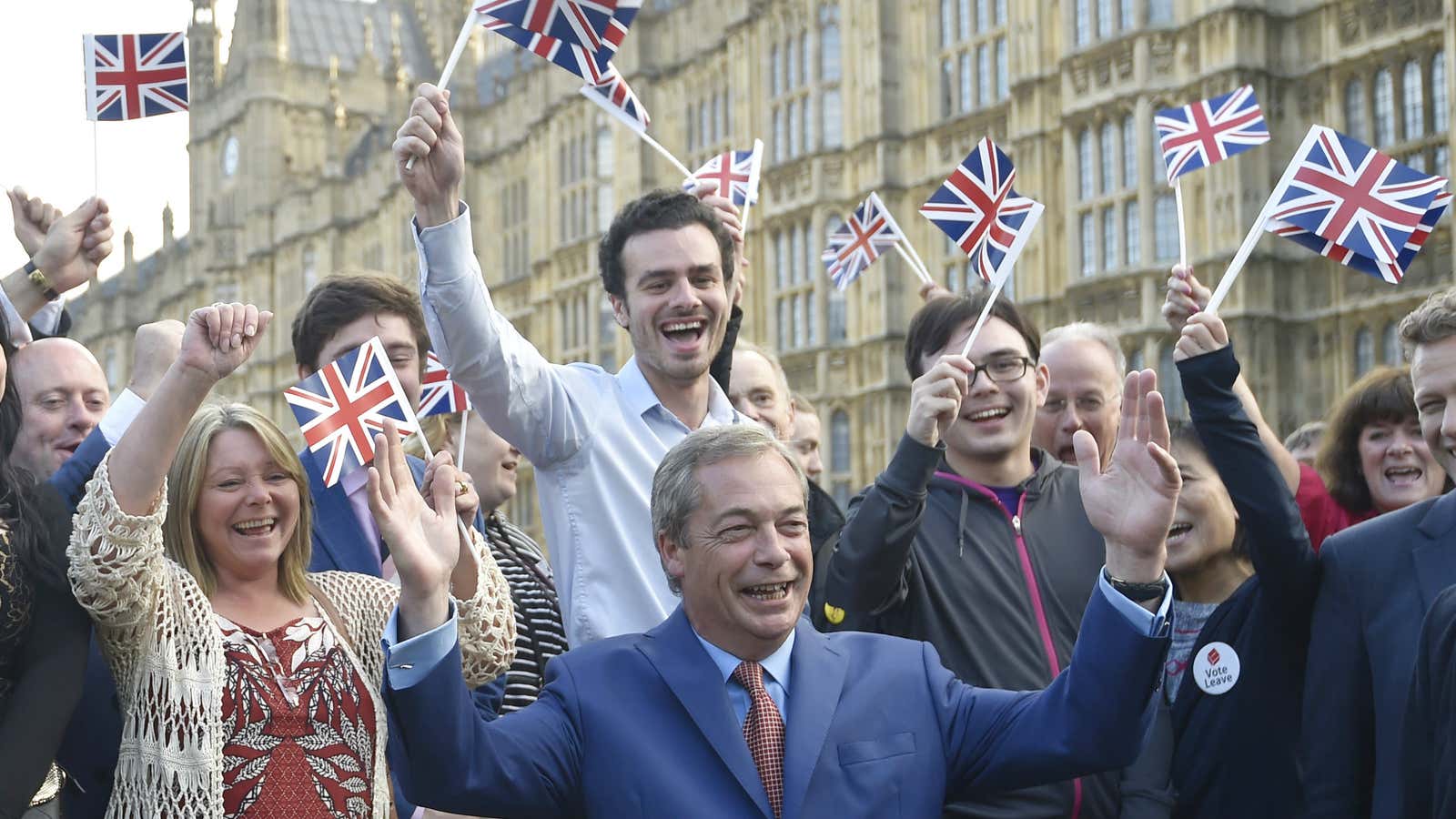The pro-Brexit campaign played heavily on notions of freedom. Politicians urged voters to vote to leave the European Union to “take back control of our lives,” and “take back control of this great country’s destiny.”
But such statements rely on a grossly oversimplified depiction of freedom, says Alexis Papazoglou, a philosophy lecturer at Royal Holloway University of London. In the fuller sense of the idea, the UK and its people had more freedom within the EU.
In a blog post for the London School of Economics on the subject, Papazoglou explains how the 20th-century philosopher Isaiah Berlin set out two forms of liberty: negative freedom and positive freedom. Negative freedom is the freedom from external constraints, while positive freedom is the freedom to do things according to your will. And in arguing the UK should leave the EU, campaigners disproportionately emphasized negative freedoms.
Leave campaigners insisted that the UK would be freer outside the EU, as it would no longer have to abide by the constraints imposed by EU law (which can be seen as an increase in negative freedom). But the UK and its people also gained freedoms from EU membership.
“As a member of the EU, I may give up the right to control my borders in terms of EU citizens,” says Papazoglou. “But then my citizens also gain the freedom to travel and work in a lot of countries.”
Meanwhile, in order to have positive freedom, you need the means to carry out your goals. It’s all very well being theoretically free to make certain decisions, but that matters very little if you don’t have the power to effectively carry out such acts. So the UK might now be free to say whatever it thinks on climate change and other world affairs, but it will likely have less of a platform to effect any change globally.
“If my power is diminished, I can’t actually do the things I want,” says Papazoglou. “I’m free only in a superficial way. No one’s actively stopping me but at the same time, I don’t have the means to do what I want.”
Papazaglou also argues that the notion of the EU imposing undemocratic edicts on the UK is false. In fact, he says, the EU is a highly democratic institution, and arguably embodies a more nuanced version of democracy than the EU referendum itself—in which slim majority vote on a referendum has the power to effect the course of a country for the foreseeable future.
“The European Union ironically is an institution that doesn’t always work on a simple majority rule,” he says. “It deliberates over many months, trying to reach a consensus between the different parties. The aim is to find as much common ground as possible.”
Philosophically speaking, Papazoglou says the EU was “the closest thing we had” to the ideal of enlightenment thinkers, such as Immanuel Kant, who believed that humans should be able to use rationality and discussion to reach an agreement.
Though a philosophical discussion of freedom might seem too abstract for day-to-day politics, Papazoglou points out that much of the debate around whether the UK should remain in the EU was focused on abstract ideas such as democracy, sovereignty, and freedom, not just practical considerations. And so, if the UK was to make a decision about its standing in the world based on a concept of freedom, there should at least have been a nuanced discussion of what freedom is.
